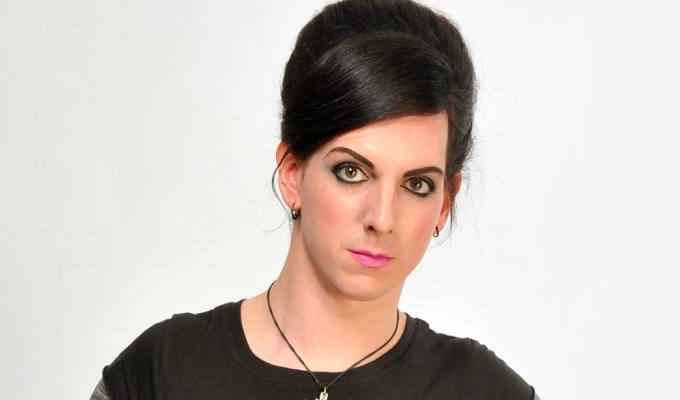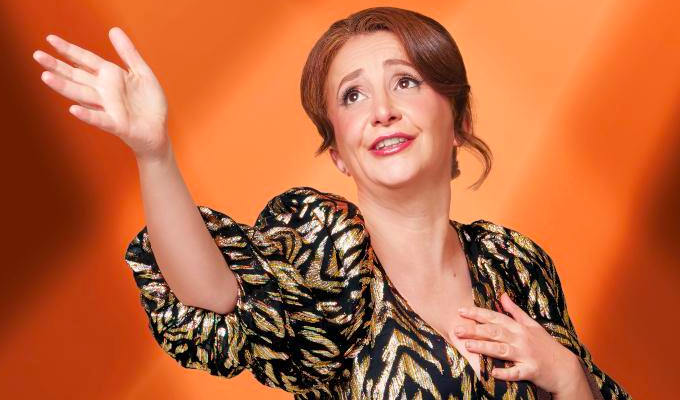Adam Vincent: Vital Signs
Note: This review is from 2010
Review by Jay Richardson
I’m wary of describing Adam Vincent’s worldview as jaundiced, because his simmering rage turns out to be that of the avowed romantic and frustrated idealist. The lights come up and we find him calmly sat on a chair, in an eyemask, a small sunflower sat beside him.
I’m also wary because he’s a hypochondriac, which is no big deal, except that Vincent is a recently qualified nurse – a paramedic who doesn’t wish to be one, isn’t particularly good at it and has considerable issues with the profession He interprets evolution as kicking against a father’s behaviour, but as Vincent’s dad was a nurse and he’s clearly taken a misstep somewhere.
Rising at 4.45am every day, his wife’s slumber gently mocking him, the depressed healer perceives insanity everywhere, from the War on Terror to his jobsworth boss. Persecuted by inane billboards and society’s dictate that he should be a go-getter, he mentally projects twisted scenarios of bear rape, serial killing and his car’s potential as a weapon. A minor indiscretion by his first girlfriend is recalled, his insecure teenage self envisioning her in flagrante with an entire sports team.
So yes, it takes a bit of effort to get on board with this intense, psychopath manqué, but it’s certainly worth it. The girlfriend tale prompts a brilliant routine, about driving tests including an assessment of emotional intelligence. And his Dexter-channelling championing of serial killers with a moral compass is extreme but has a consistent, amusing logic.
It would be glib to claim that Vincent believes all the world’s ills can be solved by an old man making minestrone soup and eating a juicy plum. But it’s certainly a central plank of his proposed social welfare reform, whether for joyriders or sluttishly dressed girls.
Up to this point, plenty in the audience have struggled with his refusal to sugar-coat his thoughts. For example, although he’s devoted to his wife and convinced he’s punching above his weight, he still reckons the last reason anyone should get married is for love. Some fine jokes keep falling flat because there’s a prevailing unease about him. After all, how can someone that young possess such grey hair?
Yet there’s something bizarrely compelling about the soup vision and Vincent has piqued interest in the story that takes up most of the show’s second half. Recently qualified as a nurse, yet through a dubious academic route and having never set foot in a hospital on a professional basis, the comic was on his honeymoon flight when he was called upon to save a man’s life.
Introducing a note of jeopardy, not least as his bumbling convinces him he might have killed the ailing gentleman, it’s a gripping, extended yarn, augmented by Vincent’s skill at switching between his terrified sense of physician’s duty, the egotistical part of his brain convinced his efforts are worth an upgrade, and the wry, analytical stand-up wise after the event. Interestingly, he places this baptism of fire within the context of everything he’s witnessed in a hospital since, and passionately demands greater appreciation of doctors and nurses.
So strong is the flight story that it might obscure the fact that Vincent is a hugely promising stand-up without it. With his willingness to divulge his deepest vulnerabilities and darkest inclinations, with a potent imagination to give them original expression, I sincerely hope to find this distinctive comic slaying more on the UK comedy circuit than on the wards of Melbourne in future.
Review date: 28 Aug 2010
Reviewed by: Jay Richardson








